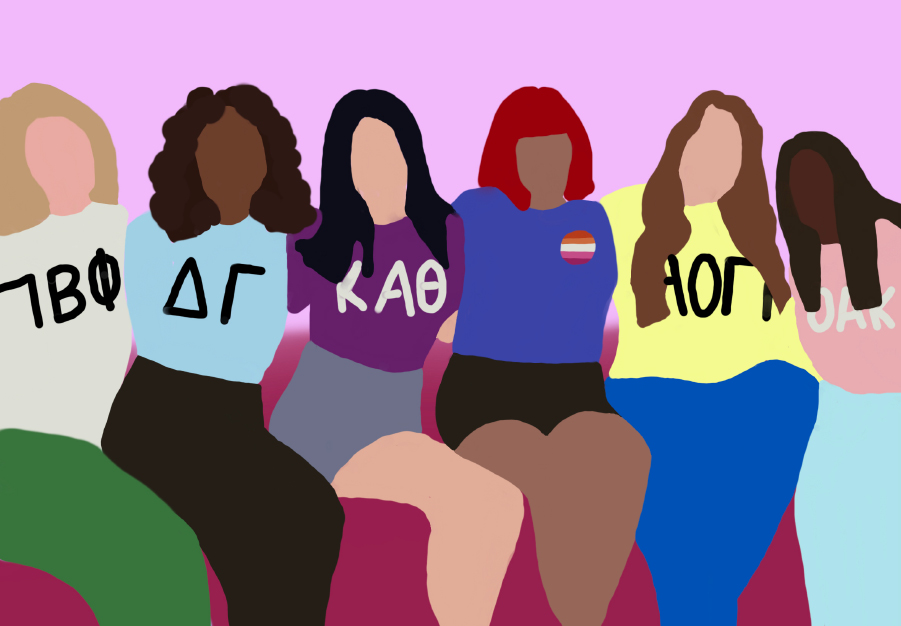As we near the culmination of yet another quarter of online learning, it’s clear that the UChicago experience has been redefined. Campus life is near non-existent, and those of us who are lucky enough to be in Hyde Park sense that campus buildings, green spaces, and architecture are dimmer—and the winter isn’t even here yet. There are two truths that are still immutable. First, that “midterm” has a very loose definition; in reality, every week that isn’t finals week is a midterm week. If someone tells you they are “done with midterms,” they are lying. Throw the book at them. Second, that unrelenting academic pressure pushes us to search for survival tactics. I’ve noticed that an online setting has drawn us to certain in-class and study habits that have seen mixed levels of success. My Viewpoints colleague, Emma Weber, recently wrote about how Zoom has promoted passivity and isolation. Though online learning has aggravated some familiar academic vices, the shortcomings it has revealed can open up new paths to success at UChicago.
A prime example of sore spots we need to be vigilant about is Zoom faux pas. Weber correctly diagnoses that Zoom removes fear of judgment, but it also leads to lapses of judgment. We’ve all experienced this at some point this quarter: A student joins the Zoom call and leaves their mic unmuted, while the class listens to some gratuitous audio that resembles, at best, some badly-produced slice of life podcast. At worst, we hear your personal conversations and other dubious sounds. Very few lecturers have the wherewithal to mute you themselves. Yes, it is disruptive, but more importantly, it can be distressing to unwittingly have your personal life aired out in front of 60 other people. When there is no tangible line between the classroom and home, it is much easier to let something slip. As a rule, disable your audio and video by default and turn it on as needed. If someone’s mic is on and they are clearly unaware of it, it only takes a few seconds to privately message them, ‘Hey, your mic is unmuted.’ If I walked into class, stepped up to the podium, and started reading out my bank account details *without knowing it*, I’d hope someone would stop me.
Weber points out that disengagement is the path of least resistance that isolates us from the community. While this is true, I don’t think it can be overcome with the goal of reconnecting with classmates and professors. Students might not want to be seen at all, given the choice. Unless there is significant take-up among students for sharing video, which I’ve only experienced when certain professors regularly ask the class to turn on their video, there is little external incentive to do so. I’ve found it to be more effective as a way to keep myself accountable rather than as a way to connect with peers. If I know others can see me, I need to be present and presentable.
Another habit that online class has facilitated is nonattendance. When lectures are recorded, there seems to be little to gain from attending them live. While recorded lectures are beneficial for students in different time zones, those who want to sleep in, have other conflicts, or want to revise at their own convenience, skipped lectures can pile up very quickly. Certainly, some may be able to get away with watching all the lectures right before finals, but that does not seem sustainable. Even first-years know by now that the quarter system does not stop for anyone. It is difficult to recover after falling behind in a term that only lasts nine weeks. For this reason, I encourage you to create a schedule for watching lectures asynchronously if you know you won’t be attending live. Even if you prefer life at 1.5x speed, having a lecture schedule prevents unnecessary all-nighters at the end of the quarter. Recordings have saved us from the horrors of more than a few 8 a.m. classes, but we cannot be complacent.
Participation has followed a similar dynamic to attendance, albeit with some distinctions. As the quarter progresses, it seems that fewer people volunteer to speak in class. This is not something endemic to Zoom; participation drops off a cliff around fifth week even during in-person classes. Discussion is often dominated by a few vocal students quickest to raise their virtual hands. While there is usually not as much recourse for others, online and asynchronous learning have induced lecturers to offer alternative ways to participate, whether through discussion posts or short essay responses to class content. Students who have not yet done so should take full advantage of these policies. Check the syllabus to make sure you’re not being penalized for not attending class. Participation is usually graded subjectively, while these measures level the playing field for participation grades. I hope they will persist even when UChicago returns to in-person instruction.
While Weber’s goal of encouraging students to “opt-in” to participate is commendable, I worry that inertia keeps most of us far from doing so. There is a very low return to opting in, as unmuting and turning on my own video may not make me feel more connected as much as seeing others’ videos and hearing their voices may do. Even when our personal contribution benefits others, we are lazy and can free ride off other people’s participation. Prolonged silences after lecturers ask questions are a college phenomenon, not an online one. At the risk of sounding too cynical, it is easier to opt-in when we accept the link between our engagement in class and our academic performance rather than the benefits of prosocial behavior.
While students across the board have adapted their class and study habits to Zoom needs, underlying these changes are the same heavy academic loads. We’ve responded in manners that are UChicago-esque for the most part, finding creative ways to adapt and persevere in the continual onslaught of work. We can’t let ourselves be lulled into a false sense of security by online learning. The UChicago roadmap remains unchanged at a fundamental level, but we are discovering new side streets and alternative routes that we cannot ignore going forward.
Soham Mall is a fourth-year in the College.







